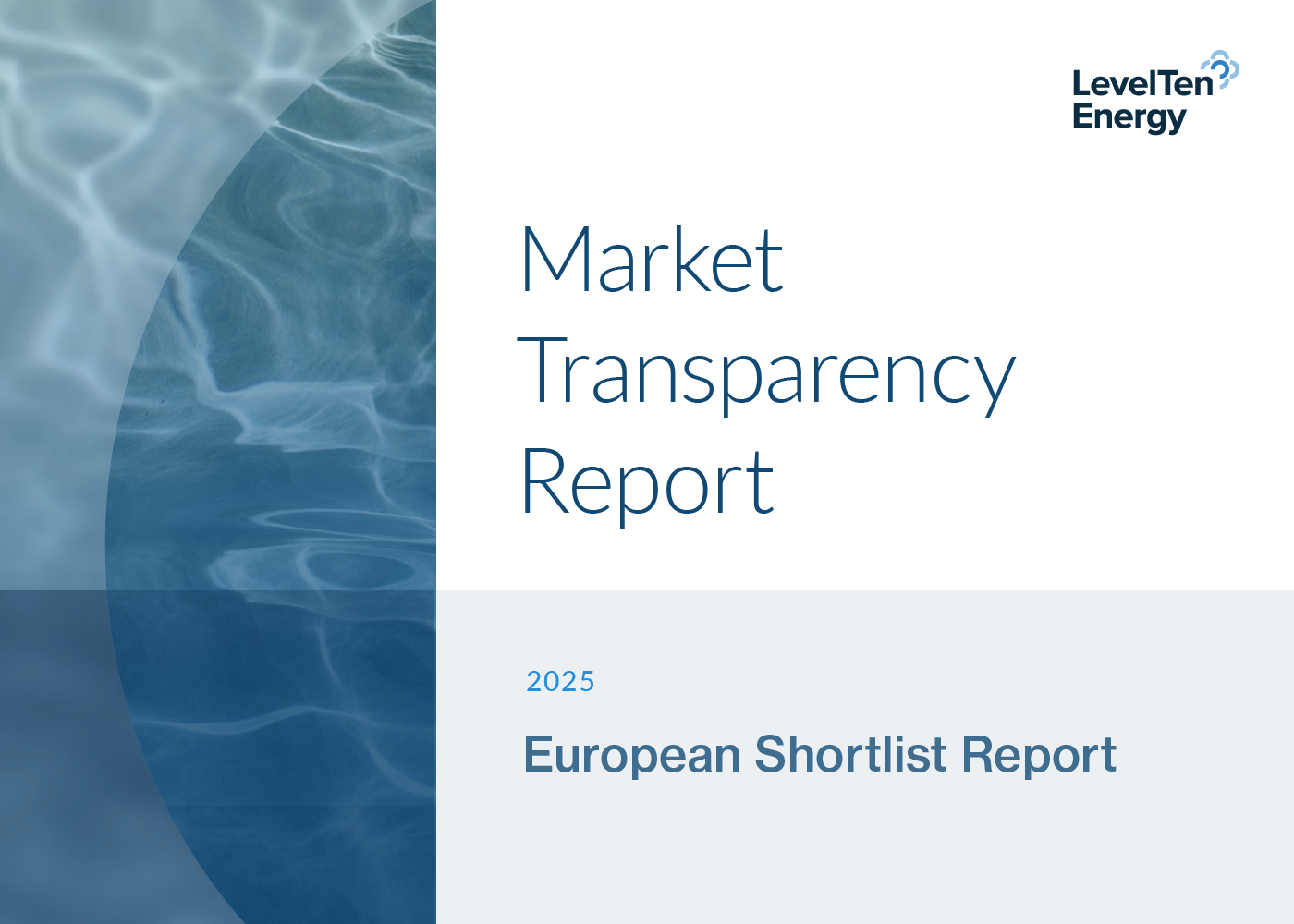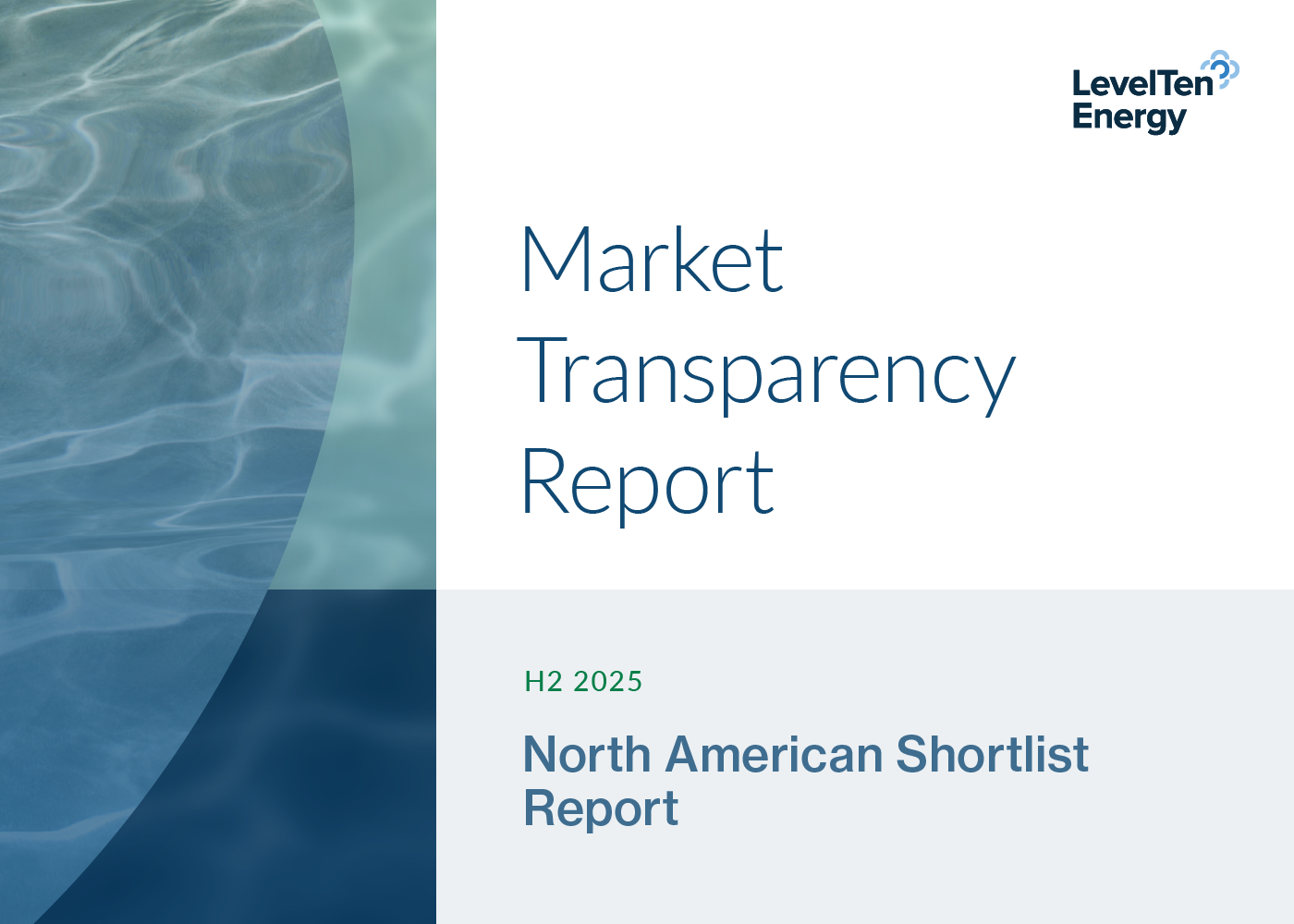As climate goals intensify and consumers demand more transparency, there is a need for even greater precision in energy-tracking methods to support next-generation sustainability ambitions. Granular Certificates (GCs) are a transformative solution, providing the high-resolution, time- and location-specific data essential for cutting-edge clean energy strategies.
Granular Certificates are a game-changer for energy procurement; here’s why.
Why We Need Granular Tracking in Clean Energy
Two key strategies are reshaping clean energy procurement: hourly matching [e.g., “24/7 Carbon-Free Energy (CFE)”] and carbon matching [e.g., "Emissionality”]. Hourly matching, the approach used by companies like Google and Microsoft, focuses on aligning energy consumption with carbon-free generation at specific times and locations to match load. Emissionality, a method preferred by organizations like Meta and Amazon, prioritizes sourcing energy where it has the most significant reductions in carbon emissions. Both strategies share a critical need for more detailed, granular accounting of energy production and use than traditional Energy Attribute Certificates (EACs) provide.
Enter Granular Certificates (GCs), an instrument that delivers more precise data to achieve these goals. GCs enable tracking energy in shorter intervals - hours instead of years - and with greater time- and location-based information. That additional resolution helps corporations to better align clean energy procurement to meet their sustainability goals.
How Granular Certificates Help Meet Climate Goals
Granular Certificates (GCs) are already emerging as a foundational tool for ambitious corporate strategies. To understand how GCs represent a leap forward in clean energy tracking, let’s first look at the foundational role EACs have played and explore how GCs build on this groundwork.
For decades, annual accounting of EACs - such as Renewable Energy Certificates (RECs) in North America and Guarantees of Origin (GOs) in Europe - has been foundational to corporate renewable energy and emissions reduction strategies. Each REC or GO verifies one megawatt-hour (MWh) of renewable energy generation, acting as a “receipt” for corporate clean energy purchases. Each receipt is uniquely numbered and includes key details like market, production year, and generation technology. EACs are used to track progress towards corporate sustainability strategies for Scope 2 emissions. However, annual EACs come with an inherent challenge: incentivizing carbon-free energy production during dark or windless hours in the absence of an hourly market signal.

As companies set more ambitious climate goals, there is a need for more precise time- and location-based tracking. To drive the energy transition forward, companies now require tools that provide a clearer picture of the impact of their clean energy purchases.
GCs offer a detailed, high-resolution view of energy generation, adding precise time and location data. With detail down to the hourly or sub-hourly level, GCs build on the familiar framework of RECs, providing a more vivid picture of grid electricity production and enabling more targeted, impactful energy procurement. GCs open the door to integrating even more higher-resolution data to support next-generation clean energy strategies. Great progress has been made toward deploying more CFE resources. Now it is time to create market signals that spur the development of new clean energy resources and maximize the emissions impact of CFE procurement.
Working Together to Make Granular Certificates Possible
A growing network of organizations is working to support the development and trade of Granular Certificates (GCs). Innovators, regulators, buyers, and suppliers all play vital roles in the expanding GC market, contributing to a future where GCs become widely accessible and operational. Coordinating efforts across the emerging ecosystem is essential to successfully produce, purchase, trade, and manage GCs on a larger scale.
- Establishing Industry Standards
EnergyTag, an independent industry-led standards body, has led a robust stakeholder process to define an industry standard for GCs. Collaborating with more than 1,000 participants from over 500 organizations - including the world’s largest renewable producers and consumers, grid operators, NGOs, start-ups, and energy-tracking providers - EnergyTag aims to enable widespread adoption of GCs by creating consistent guidelines that incorporate time- and location-specific data into existing clean energy procurement practices. LevelTen is working with the GC Trading Alliance and others across the industry to help effectuate the EnergyTag standard. - Addressing data constraints
Tracking systems and registries are key to advancing timely access to accurate, granular data for load, generation, or emissions factors. Without this data, designing and implementing granular strategies is difficult. To ensure environmental legitimacy, the transition towards granular reporting must be prioritized. As noted in Readiness for Hourly: U.S. Renewable Energy Tracking Systems, a June 2023 report from the Center for Resource Solutions (CRS), “Although hourly tracking cannot be implemented nationwide immediately, the majority of the existing U.S. REC tracking systems estimate a short phase-in period of 1–2 years once the decision to implement hourly tracking has been made.”
- Transaction Infrastructure for Trading
To streamline and centralize these efforts, LevelTen launched the GC Trading Alliance in late 2023, bringing together industry leaders AES, Constellation, Google, and Microsoft. With support from Granular Certificate Trading Alliance members, and from Intercontinental Exchange (ICE), LevelTen Energy is developing a first-of-its-kind trading and management platform for time- and location-based energy attribute certificates. The first auctions for GCs are set to launch in early 2025.
No Matter the Strategy, Granular Certificates Play a Vital Role
Achieving these next-generation goals requires collaboration across the energy ecosystem. Just as corporate PPAs transformed from niche agreements to become a standard tool for corporate procurement, GC-focused strategies are poised to set new benchmarks for environmental leadership. Together, these tools and strategies will define the next chapter of the clean energy movement.
LevelTen is proud to be part of this movement, working alongside our GC Alliance partners and other industry leaders to design the infrastructure that this emerging market requires. We cannot do it alone. Now, more than ever, we need collective action. Please join us, bringing your expertise and ambition to scale these groundbreaking granular solutions and environmental leadership.

.png)




